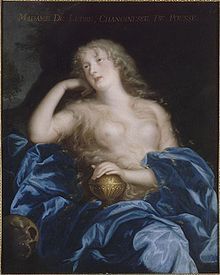
Charles IV, Duke of Lorraine
Charles IV, Duke of Lorraine, was born on April 5, 1604. He was the youngest son of Duke Henry II of Lorraine and his wife, Margherita Gonzaga. He was educated in Vienna and later served in the Imperial army under his brother-in-law, the Holy Roman Emperor Ferdinand II.
In 1634, Charles' brother, Duke Nicholas Francis, died and he inherited the Duchy of Lorraine. During his reign, Charles IV worked to improve the economy and infrastructure of the region. He also supported the arts and sciences, and established a university in Nancy.
However, his reign was marred by conflict with France, which occupied Lorraine during the Thirty Years' War. In 1641, Charles was forced to flee to Germany, where he continued to fight against the French.
In 1648, the Treaty of Westphalia ended the Thirty Years' War and Charles was able to return to Lorraine. However, his power had been greatly diminished and he was forced to give up some of his territory to France.
Charles IV died on September 18, 1675, and was succeeded by his son, Charles V. Despite the challenges he faced, Charles IV is remembered as a devoted ruler who worked tirelessly to improve the lives of his people.
